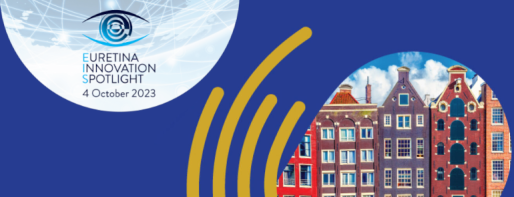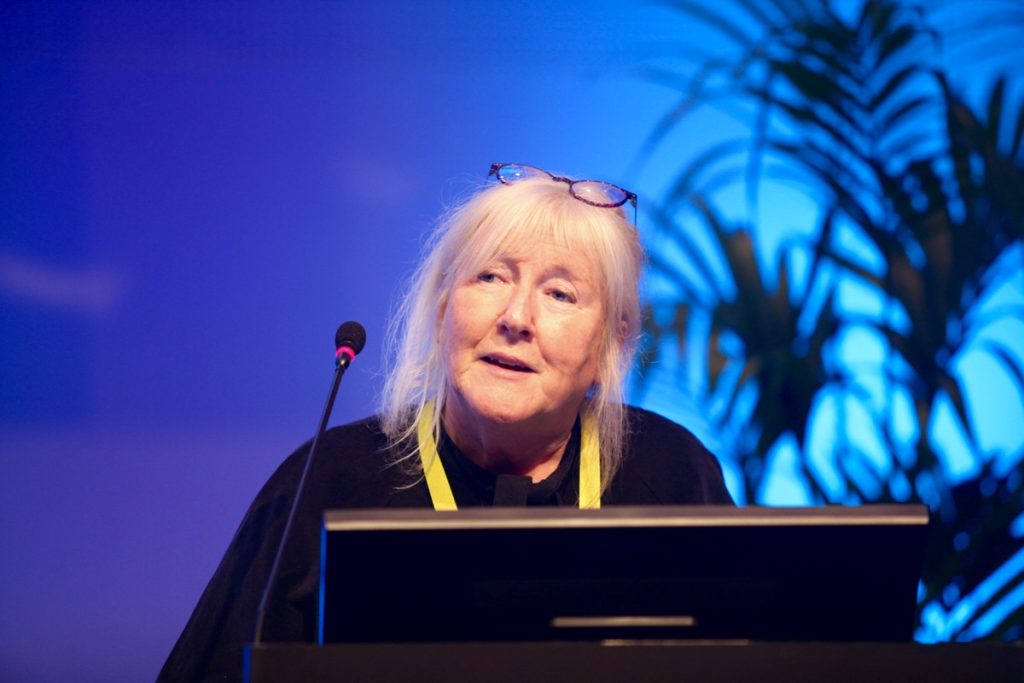The importance of considering the psychosocial and emotional impacts suffered by patients with diseases causing vision loss and the relationship between patient satisfaction with care and treatment adherence/persistence were topics addressed by a series of speakers from the United Kingdom in the Sunday afternoon symposium “Patient Well-Being: Time to Take our Heads Out of the Sand”. As the subtitle of the session suggested, these are issues that are being overlooked by both researchers and clinicians.
Focusing on neovascular age-related macular degeneration (nAMD), Dr Richard P Gale reviewed evidence, including from the nAMD Barometer research programme, showing suboptimal inclusion of tools for assessing quality of life and vision-related quality of life in clinical trials investigating therapeutic interventions. He noted as well that there is inconsistent measurement of patient- and caregiver-reported outcomes in the real-world and suggested that a consensus statement might be needed to rectify the situation.
Dr Gale also observed a need for better management of anxiety and depression that is prevalent among patients with nAMD and. according to available data, seems not to improve when patients receive treatment for nAMD. As part of his conclusion, Dr Gale stated that maintenance of quality of life for patients with nAMD appears to be a realistic goal, and he proposed that it might be achieved with other interventions, such as behavioral activation.
Dr S James Talks provided more detail on nAMD Barometer research conducted to learn about experiences, emotions, and reasons for non-adherence and non-persistence with intravitreal injections among patients with nAMD. He emphasised that understanding these issues is key to addressing them and enhancing patient-focused care.
Dr Tariq Aslam offered potential solutions to addressing patient well-being in a busy clinic. He presented tools developed at his institution designed to rapidly screen patients for anxiety and depression and facilitate prompt management for affected individuals. Dr Aslam reported that implementation of these instruments, both at his institution and in translated form at other clinics around the world, positively impacted patient care without hampering clinic flow.
Dr Mhairi Thurston, who holds a doctorate in counselling and whose academic career focuses on the psychosocial impact of sight loss, offered advice on supporting patient mental health. Uniquely, Dr Thurston’s perspectives were derived not only from findings of research she’s conducted, but also from her own journey as a patient who suffered vision loss, depression, and anxiety relating to a diagnosis of retinitis pigmentosa and then cataract later in life.
Leading off her presentation with its take home message, Dr Christiana Dinah stated that patient-centred intervention development safeguards patient well-being. Corresponding with information presented by Dr Gale, the premise for Dr Dinah’s talk was that patients are the last thought in the development of any intervention, the result of which is poor treatment experience, poor compliance and adherence, and residual unmet needs. She called for a culture change in the drug development process that values and incorporates the diverse preferences, values, needs, and experiences of patients.
“As researchers and clinicians, this has to be our North star,” Dr Dinah said.
This session is available to registered delegates on demand.


